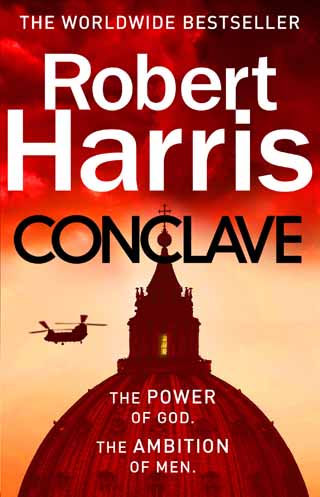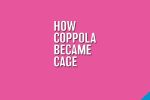Conclave by Robert Harris – Review

By Nigel Armitage
The Pope is dead and a papal conclave – made up of 118 cardinals from all over the world – assembles behind the locked doors of the Sistine Chapel to cast their votes in the world’s most secretive election. Its conclusion will result in one cardinal becoming the most powerful spiritual figure on earth; a prospect that brings out the best and the worst of these ‘holy’ men. And it is this paradox – mortals charged with a divine responsibility – that Robert Harris explores in Conclave, with his customary eye for excellent characterisation and an intrigue-laden plot.
As in previous Harris novels such as The Cicero Trilogy (2016) and The Ghost (2007), Conclave’s main character (Cardinal Lomeli) stands a little apart from the source or embodiment of political power (whether a Roman senator or an ex British Prime Minister), and it is from this perspective (shared by the reader) that Harris critiques power; its influence on those who seek it and those who seek to deny others from attaining it. “‘The men who are dangerous – the men who must be stopped – are the ones who actively desire it,'” a cardinal counsels Lomeli.

The story takes place over the course of 72-hours, during which time the fortunes of the various papal candidates will rise and fall, as dictated by the outcome of successive ballets. As well as exposing the personal failings and hypocrisies of some of its candidates, the election also gives vent to arguments between the traditionalists and the modernists.
“Masterfully done”
“’We do not need a Church that will move with the world but a Church that will move the world,’” argues one of the former’s adherents. At stake is the future direction of the Roman Catholic Church and the spiritual guidance of its congregation of one and a quarter billion souls. Also, tellingly, the role of women in the Church.
Not until one candidate has a two thirds majority will the election conclude and this arrangement allows for a gradual building up of the story’s suspense.
It is masterfully done and the reader shares Lomeli’s growing sense of unease and trepidation. “We are an Ark, he thought, surrounded by a rising flood of discord.” But Lomeli is wrong to imagine that the conclave is sequestered from the world and its horrors, as events in the story will go on to show.
Conclave is another fine, satisfying read by Robert Harris. He demonstrates again the capability to re-imagine a setting and a situation which might otherwise remain untold and therefore unknown in the outside world. Instead he brings to bear his considerable skill and imagination to portray this inner, secret world and the result is both thrilling and, in the end, moving.









